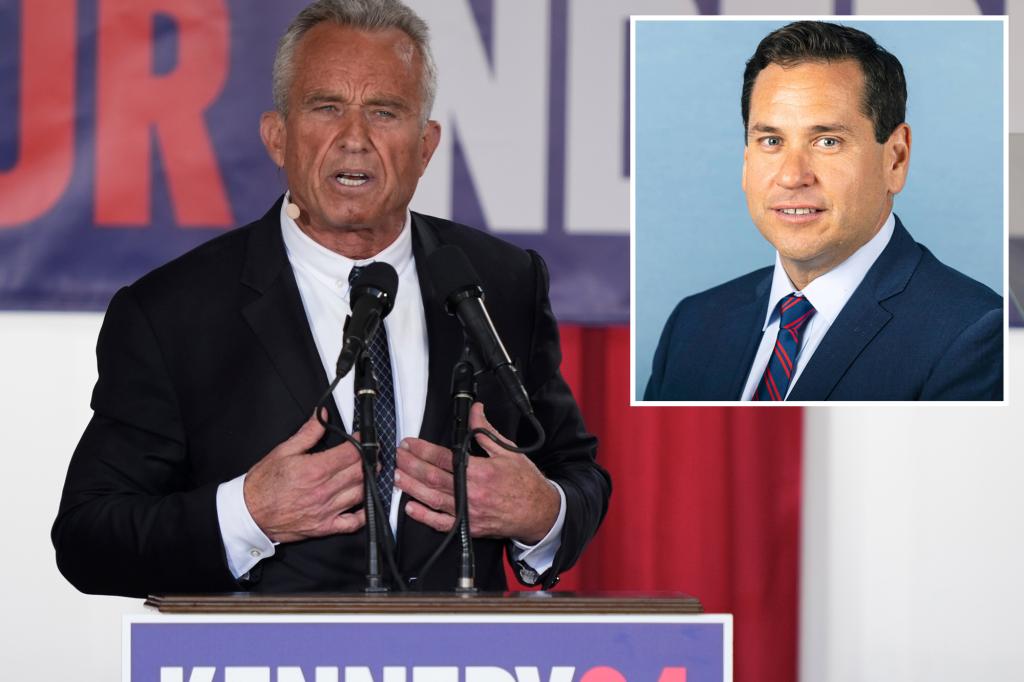Robert F. Kennedy Jr.’s presidential campaign ran into trouble in Nevada as they were accused of failing to adhere to a law requiring the naming of a vice-presidential candidate on their ballot access petitions in the state. The campaign was shocked by this accusation, as they claimed they followed the law and were given approval for their petition without a named VP. However, the Nevada Secretary of State’s Office insisted that the campaign must abide by state law, despite the misinformation given earlier by an employee about the requirement.
The Kennedy campaign accused the Nevada secretary of state and the Democratic National Committee of corruption, claiming that they are conspiring against the campaign by creating new requirements with no legal basis. The campaign threatened legal action against the Nevada secretary of state for potentially invalidating the ballot access signatures, which they argue is an assault on the democratic rights of Americans in Nevada. They highlighted the alleged corrupt practices of the Democratic Party, citing examples from previous elections and accusing the party of trying to keep Kennedy off the ballot.
The Nevada Secretary of State’s Office responded to the accusations by acknowledging the incorrect guidance given by an employee but stated that the campaign is still obligated to follow state law. The office clarified that when government agencies provide incorrect information, they are not allowed to honor those statements if they conflict with the law. Despite the misunderstanding, the campaign was warned that they must still comply with the designated requirements for ballot access in the state.
Kennedy Jr.’s campaign demanded that any efforts to invalidate the signatures be stopped by a federal judge and stated that they plan to depose the Nevada secretary of state to uncover the origins of the alleged scheme. The campaign also announced their intention to name a running mate on the following day to address the issue of not having a vice-presidential candidate on their ballot access petitions in Nevada.
The issue in Nevada stems from a law since 1993 that requires independent candidates to designate a nominee for Vice President when collecting signatures for ballot access in presidential elections. Although the Kennedy campaign believed they had followed the law correctly, they encountered challenges with the approval process when they did not name a VP on their petitions. Despite the confusion caused by incorrect advice, the Nevada Secretary of State’s Office emphasized that the campaign must still comply with state law and fulfill the necessary requirements for access to the ballot.
The disagreement between the Kennedy campaign and Nevada’s Democrat secretary of state escalated into accusations of corruption and attempts to undermine the campaign. The campaign stood firm in their assertion that they had followed the law and had obtained approval for their petitions without naming a vice-presidential candidate. As they faced potential invalidation of their signatures, the campaign responded with threats of legal action and condemnation of alleged corrupt practices within the Democratic Party.


